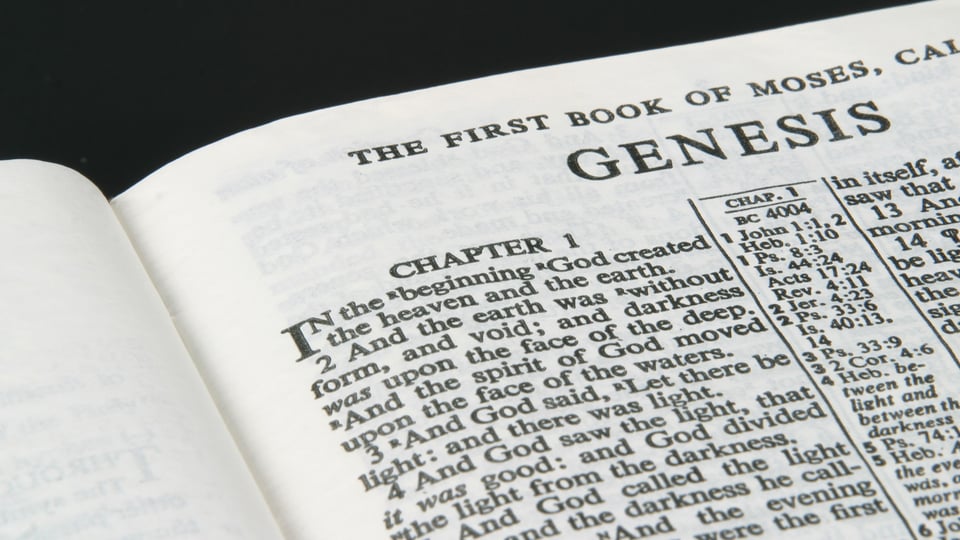Genesis: A Book of Clarity for a Confused World
The testimony of the book of Genesis has been under attack for a long time. The result has been confusion. Can this book bring clarity to our world?

StanRohrer/iStock via Getty Images
The first book of the Bible, Genesis, is the book of origins. In fact, its very name means origin or beginning, and it opens with three simple words: “In the beginning.”
In its first chapter, we read about God’s creation of our physical order. Sadly, the testimony of Genesis has been attacked and maligned in our times. But is this book still relevant in the 21st century? Could it clear up confusion that has settled in the collective human mind?
“So God created man …”
Genesis 1:27 reveals the origin of humankind: “So God created man.”
Today fewer and fewer people believe those four words. Atheists and agnostics now make up about 14 percent of the world’s population. Much of this is due to people relying exclusively on materialism instead of the supernaturally revealed truth of the Bible.
Modern education teaches the opposite of the Genesis testimony—Darwinian evolution, which claims man evolved from lower life-forms and ultimately from nonliving matter by natural processes. This hypothesis (see “Is God Really the Creator?”) is often presented as fact, though it provides no logical answer for the creation of living things from inanimate matter.
The hypothesis itself has many holes, including irreducible complexity, the lack of missing links in the fossil record, the lack of failed mutations in the fossil record and the intricate workings of DNA. When you understand the issues with the theory of evolution, you realize that it takes much less faith to believe Genesis!
“Male and female He created them”
Genesis 1:27 ends with “male and female He created them.” The biological concepts of male and female are being attacked and eroded in front of our eyes.
Society’s confusion on this issue—along with the instability of family structures, the prevalence of abuse and unhealthy approaches to sex and gender, the scarcity of wholesome role models, the drastic changes in public opinion on moral issues, and so many more negative influences—has caused much suffering and perplexity, as bewildered young people seek to find their identity in an unstable and fast-changing world.
God created two distinct sexes (male and female) and gave them different roles, strengths and characteristics.
“Gender identity,” the idea that people can choose their gender apart from their biological sex, has become accepted in government, schools and business. From this concept, we now have an explosion of different genders.
What used to be simply he and she now includes newly defined pronouns: e, eir, ey, hu, peh, per, thon, hir, sie, tey, ve, vis, xe, yo, ze, zhe and zir.
Though society’s confusion will require much heartache, compassion and patience to overcome, God is not the author of the confusion. The truth is simple. To quote Jesus Christ “He who made them at the beginning ‘made them male and female’” (Matthew 19:4).
God created two distinct sexes (male and female) and gave them different roles, strengths and characteristics. To preserve these blessings, the Bible warns about mixing them in any way (Leviticus 18:22; Deuteronomy 22:5; Romans 1:26-27).
For more insight on this issue, read “Why Sex Matters: The Architect's Design.”
Nature and animals given personhood?
In recent years, elements of nature and animals have been elevated to the level of humanity.
There is nothing wrong with protecting and caring for animals—God instructs us to (Genesis 1:26-28). But there is something wrong with granting human status to animals and nature. This ignores the truth that only human beings were created in the image of God (verse 27).
God is reproducing Himself through human beings—not plants or animals. To learn more, read “Relationship With God.”
The seventh-day Sabbath
The book of Genesis establishes a seven-day week, ending with the Sabbath (or rest) on the seventh day (Genesis 2:2-3). Though we still operate on a seven-day week, most people ignore the command to rest on the seventh day.
Millions of people designate Sunday (the first day of the week) as the “Lord’s Day,” even though the Bible nowhere commands its observance. How did this change occur?
In the year A.D. 313, Constantine the Great legalized Christianity in the Roman Empire through the Edict of Milan. A few years later, in A.D. 321, he decreed Sunday (“the day of the sun”) as the Christian day of rest and worship. This made sense because Sunday had been used by pagan Rome to worship the sun god.
To learn more, read “Was the Sabbath Changed to Sunday?”
Defeat confusion
This confusion exists because mankind denies God and His Word (Romans 1:28). As our society moves further from God as the source of knowledge, confusion deepens.
But God is not the author of confusion (1 Corinthians 14:33).
Studying and believing His Word will bring clarity and understanding to our world and help us develop a sound mind (2 Timothy 1:7). The book of Genesis is an excellent place to start.
For an overview of the Bible’s book of origins, read “Genesis.”
Date Posted: May 14, 2025



